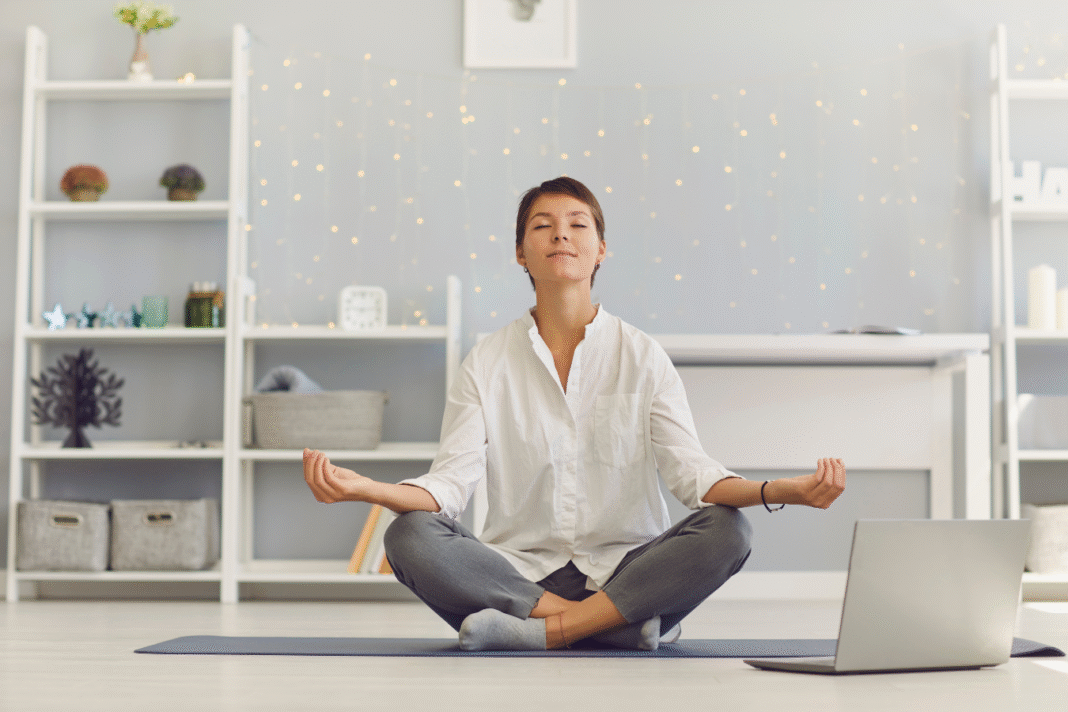Life today moves fast, and with that pace comes constant pressure, deadlines, and responsibilities. Stress and anxiety are common feelings, but when they become a part of everyday life, they can affect our health, relationships, and overall happiness. While medications and therapies are available, many people look for natural ways to reduce stress and anxiety daily—simple habits that can fit into their routines without side effects.
In this guide, we’ll explore proven natural methods that can help calm the mind, relax the body, and create balance in daily life. These strategies are easy, practical, and can be applied by anyone, no matter how busy life gets.
Understanding Stress and Anxiety
Before exploring solutions, it’s important to understand what stress and anxiety really are.
- Stress is the body’s response to pressure. It can be triggered by work, finances, relationships, or even daily responsibilities. Short-term stress can motivate us, but long-term stress can damage health.
- Anxiety often comes with excessive worry, racing thoughts, or fear about the future. While occasional anxiety is normal, constant anxiety can interfere with daily life.
Natural solutions don’t eliminate all problems, but they do help the mind and body respond to challenges in a healthier way.
Natural Ways to Reduce Stress and Anxiety Daily
1. Practice Deep Breathing
One of the simplest yet most powerful techniques is deep breathing. When you’re stressed, your body goes into “fight or flight” mode, causing fast breathing and increased heart rate. By slowing down your breath, you signal to the brain that it’s safe to relax.
Try this:
- Sit comfortably, close your eyes, and place one hand on your stomach.
- Inhale deeply through your nose for 4 seconds, letting your stomach rise.
- Hold for 2 seconds, then exhale slowly through your mouth for 6 seconds.
- Repeat for 5–10 minutes.
This practice lowers blood pressure and instantly calms anxiety.
2. Get Moving with Exercise
Exercise isn’t only for physical fitness—it’s also one of the best natural stress relievers. Physical activity releases endorphins, the brain’s “feel-good” chemicals, which improve mood and reduce anxiety.
You don’t need to spend hours at the gym. Even short activities help:
- Take a 20-minute walk outdoors.
- Do a quick yoga session at home.
- Dance to your favorite song.
- Stretch during breaks at work.
Moving your body daily reduces tension, improves sleep, and boosts confidence.
3. Eat Stress-Reducing Foods
Your diet has a direct connection to your mood and mental health. Certain foods can calm the nervous system, while others increase anxiety.
- Best foods for calmness: leafy greens, fatty fish (salmon, tuna), nuts, seeds, yogurt, and berries. These provide magnesium, omega-3s, and probiotics, which support brain health.
- Foods to avoid: caffeine, sugary snacks, and processed foods, as they can trigger energy crashes and worsen anxiety.
Drinking plenty of water also helps keep the body and mind balanced.
4. Connect with Nature
Spending time in nature is one of the most effective natural ways to reduce stress daily. Studies show that being outdoors reduces cortisol (the stress hormone) and improves overall mental health.
Simple ways to connect with nature:
- Take a walk in the park or by a river.
- Sit under a tree and breathe fresh air.
- Do outdoor activities like gardening or hiking.
Even just 15 minutes outside can refresh the mind.
5. Practice Mindfulness and Meditation
Mindfulness means focusing on the present moment instead of worrying about the past or future. Meditation is a structured way to practice mindfulness. Both reduce overthinking and calm anxiety.
Start small:
- Spend 5 minutes daily sitting quietly and focusing on your breath.
- Use meditation apps for guided sessions.
- Practice mindfulness while eating, walking, or even washing dishes.
Over time, you’ll notice greater clarity, calmness, and control over anxious thoughts.
6. Improve Sleep Quality
Lack of sleep increases stress and anxiety. Creating a healthy sleep routine is essential for mental balance.
Tips for better sleep:
- Go to bed and wake up at the same time daily.
- Avoid screens (phones, TV, laptops) at least 1 hour before bed.
- Create a calming bedtime routine with reading, stretching, or herbal tea.
- Keep your bedroom cool, dark, and comfortable.
When you rest well, your brain can handle stress more effectively.
7. Journaling for Mental Clarity
Writing down your thoughts is a powerful way to process emotions. Journaling helps release negative feelings and gives you perspective.
You can try:
- Writing 3 things you’re grateful for every day.
- Writing down worries and possible solutions.
- Keeping a diary of positive experiences.
This simple practice trains the brain to focus on solutions and gratitude instead of fear.
8. Limit Digital Overload
Constant notifications, emails, and social media updates increase stress. To protect your mental health, practice digital detoxing.
- Set specific times to check emails or social apps.
- Turn off unnecessary notifications.
- Take short breaks from screens throughout the day.
Reducing screen time lowers overstimulation and helps you feel more grounded.
9. Build Healthy Social Connections
Human connection is a natural stress reliever. Talking to a trusted friend or spending time with family helps release oxytocin, a hormone that boosts happiness and reduces stress.
If you feel isolated, try:
- Joining a local club or group.
- Calling a friend for a short chat.
- Volunteering in your community.
Even small connections make a big difference in calming anxiety.
10. Try Herbal Remedies and Teas
Nature offers calming remedies that have been used for centuries. Herbal teas and natural supplements can promote relaxation.
Some options include:
- Chamomile tea – reduces stress and improves sleep.
- Lavender – used in aromatherapy to calm the mind.
- Ashwagandha – an adaptogenic herb that reduces cortisol.
- Green tea (with L-theanine) – promotes calm focus.
Always consult a healthcare provider before taking herbal supplements, especially if you’re on medication.
Table: Quick Summary of Natural Stress-Relief Methods
| Method | How It Helps | Time Needed Daily |
|---|---|---|
| Deep Breathing | Calms nervous system instantly | 5–10 min |
| Exercise | Releases endorphins, reduces tension | 20–30 min |
| Mindfulness/Meditation | Reduces overthinking, improves focus | 5–15 min |
| Journaling | Clears mind, promotes gratitude | 10 min |
| Herbal Teas | Relaxation and better sleep | 1 cup |
Conclusion
Stress and anxiety are part of life, but they don’t have to control you. By practicing natural ways to reduce stress and anxiety daily, you can build resilience and enjoy greater peace of mind. From deep breathing and meditation to exercise and herbal remedies, each method helps your body and mind relax naturally. The key is consistency—small daily habits add up to big changes in emotional health.
FAQs
1. Can natural methods completely replace medication for anxiety?
Not always. Natural methods can greatly reduce daily stress and mild anxiety, but if symptoms are severe, professional treatment may be necessary. Always consult a healthcare provider.
2. How long does it take to see results from natural stress relief?
Some methods, like deep breathing, work instantly, while others, such as mindfulness or journaling, may take weeks of consistent practice to show lasting effects.
3. Are herbal remedies safe for everyone?
Not always. Some herbs interact with medications or may not be suitable for pregnant women. Always check with a doctor before starting herbal supplements.
4. What if I don’t have much time for stress-relief activities?
Even 5–10 minutes of deep breathing, stretching, or mindfulness can reduce stress. Small habits are better than doing nothing.
5. Can diet really affect anxiety levels?
Yes. A balanced diet with whole foods supports brain health, while too much caffeine, sugar, or processed foods can worsen stress and anxiety.




